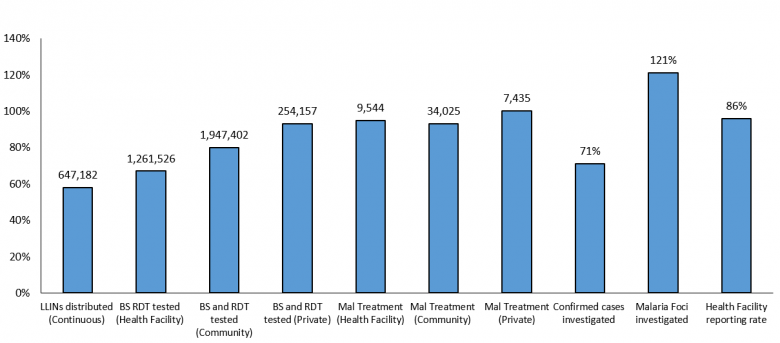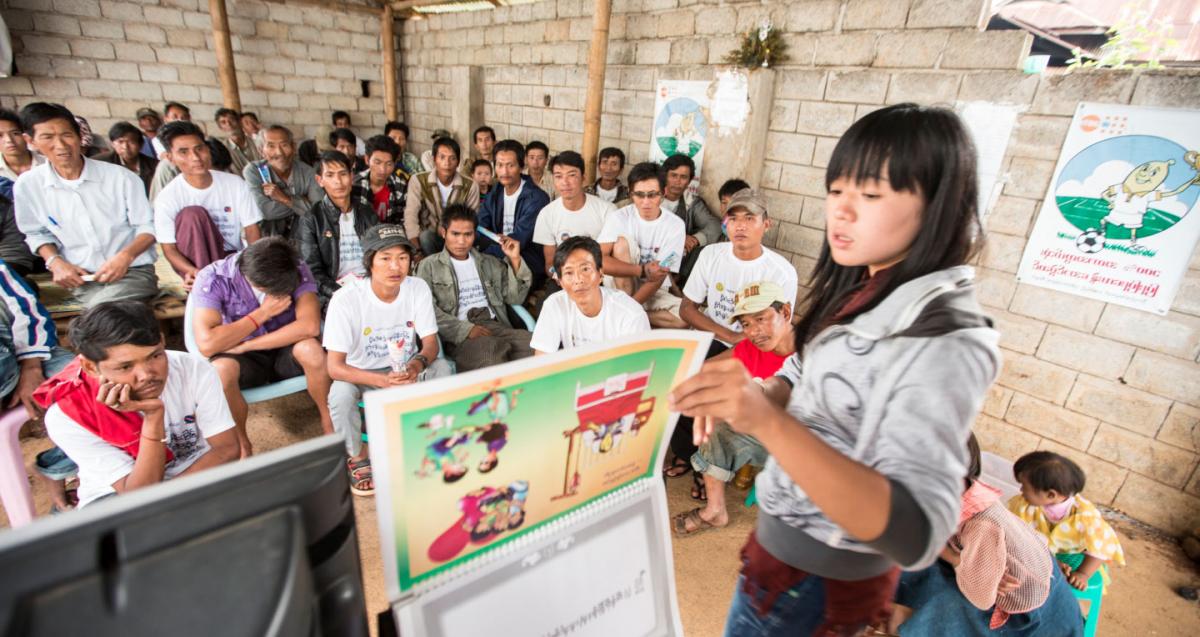
The non-cumulative results for 2020 are shown as a percentage of the annual target. The LLINs (continuous) distributed indicator is funded by GFATM.
In 2020, during the COVID-19 pandemic PR-UNOPS was working closely with the public sector service providers and implementing partners to maintain prevention, care and treatment services while undertaking COVID-19 infection control measures so that the interventions were ensured not to be interrupted.
The malaria grant has supported the continuous distribution of 647,182 (58% of target) long-lasting insecticidal bed nets (LLINs) in 2020.
Over the year, parasitological testing was conducted on 3,463,085 suspected malaria cases in public health facilities, in the community and in the private sector, with all suspected malaria cases (100%) presenting to all sectors receiving a parasitological test.
Furthermore, 46,446 (85%) of 54,212 confirmed malaria cases were treated according to the national treatment guidelines at public health facilities, community, and private sectors.
The key commodities such as malaria Rapid Diagnostic Test (RDTs), Artemisinin-based combination therapy (ACTs), Chloroquine and Primaquine were stocked up for the Integrated Community Malaria Volunteers (ICMVs) with three to six months’ buffer and field offices with two to three months’ buffer to enable ICMVs to have enough stocks in hand during the time when there are travel limitations due to COVID-19.
Surgical masks, gloves and hand sanitizers were procured and distributed for the safety of healthcare workers. ICMVs are instructed to wear masks and gloves while conducting RDT tests; to keep physical distancing while travelling to malaria endemic areas; and to refer all the patients with COVID-19 related symptoms or those who have travel history to areas where there is a local transmission of Covid-19 to nearest health centres.
UNOPS has supported the distribution of 100,000 Long Lasting Insecticidal Nets (LLINs) and 1.5 million gloves to the facility quarantine centres and hospital sites to prevent the spread of malaria from the returned migrants and ensure the safety of people.


